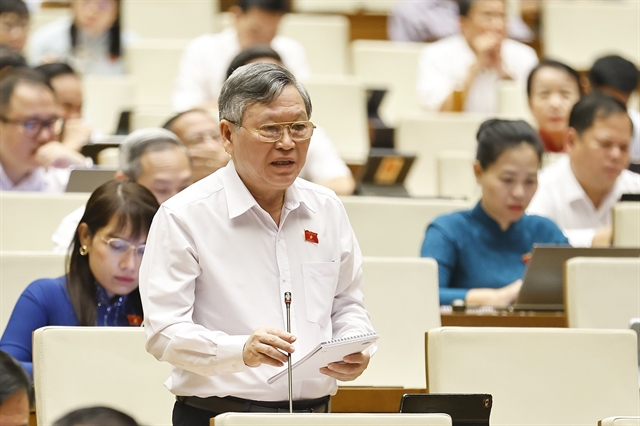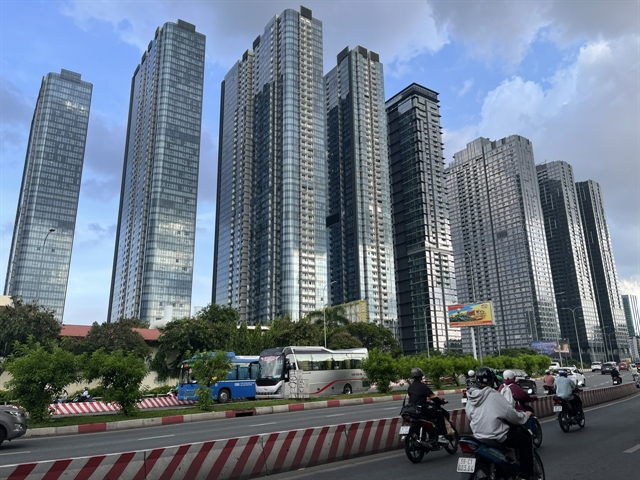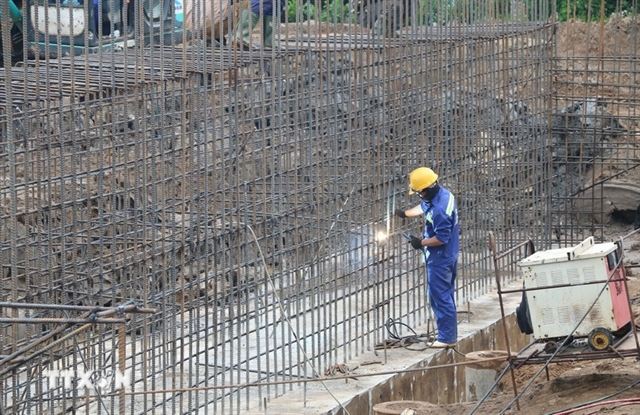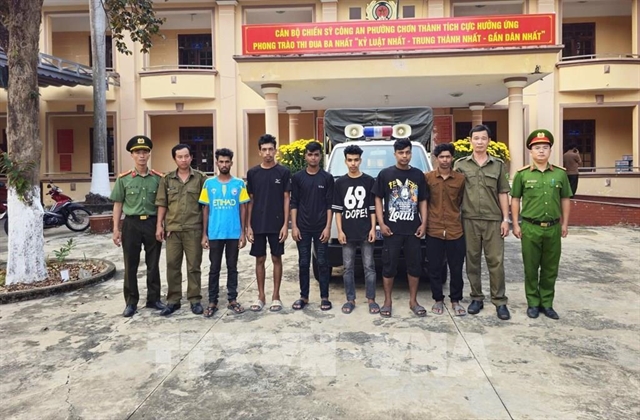 Politics & Law
Politics & Law


|
| Deputy Tô Văn Tám from Kon Tum Central Highlands province gives opinion. — VNA/VNS Photo Doãn Tấn |
HÀ NỘI — Combatting counterfeit goods and trade fraud needs a national strategy with effective, synchronous and long-term policies.
That was the message from Deputy Tô Văn Tám from Kon Tum Central Highlands province on Tuesday morning to the National Assembly (NA) as lawmakers discussed the socio-economic development plan, last year's State budget and developments so far this year.
Deputy Tám said he agreed with and highly appreciated the Government's report on the issue, but expressed concern about counterfeit goods and trade fraud.
He said that last year, 47,000 cases of counterfeit goods and poor quality goods were discovered. This number in the first four months of this year was more than 30,000, of which there have been 1,450 prosecutions.
In addition, hundreds of thousands of counterfeit products have been sold on the market for many years, including fake food, cosmetics and medication.
Tám mentioned a notable recent case involving a production and trading ring of hundreds of tonnes of fake food, which involved a number of officials.
The case was recently prosecuted by the Investigation Police Agency.
He also pointed out that counterfeit goods are sold on social networks with the participation of famous people, making it difficult for consumers to distinguish between real and fake goods".
“The Government should strengthen inspection, avoiding overlap in management,” said Tám.
He added that counterfeit goods were a very serious social and ethical issue, large-scale and sophisticated tricks.
Emphasising that fighting counterfeit goods and trade fraud was a vital requirement for the economy, Deputy Nguyễn Trần Phương Trân from HCM City said: “Reality shows that we have done it, but not strongly enough, not thoroughly. Recent inspections have discovered many violations, showing that the problem is very serious.”
She believes that the existence of counterfeit goods was due to consumer concerns for brand reputation, so many establishments have borrowed the name of other famous brands to sell their goods more easily.
“It is necessary to launch a movement to build Vietnamese brands," she said.
"Each business, each industry needs to create its own brand, associated with real quality, clear origin, green and transparent production.”
Citing successful cases such as Bắc Giang lychee, ST25 rice and Vinfast cars, Trân said that with the right strategy and policy support, Vietnamese brands can go far.
Deputy Lê Hữu Trí from Khánh Hòa Province was also concerned that counterfeit goods not only threaten people's health and lives but also undermine social trust.
Although the legal system covers almost every aspect, along with strict supervision from border gates to residential areas, hundreds of tonnes of counterfeit drugs and foods are still produced and sold openly at pharmacies, legal stores and even appear in hospitals, kitchens and schools.
Trí suggested that the Government innovate management methods to prevent violations and not create an environment that fosters criminal activities.
Along with that, it is necessary to establish a strict legal framework to handle violations, organise inspections, detect, and strictly enforce law enforcement officers who cover up and assist criminals.
Sustainable growth
During the session, many delegates expressed their high consensus with the Government's report submitted to the NA.
They said that the report had been prepared very carefully, comprehensively assessed all areas, and pointed out difficulties, shortcomings, and problems.
The report has analysed causes and proposed drastic directions, tasks and solutions for the future.
Despite unfavourable actual context, the country still achieved and exceeded 15 out of 15 economic and social targets.
The macro economy is stable, especially inflation has been controlled below four per cent for 10 consecutive years.
Deputy Trần Hoàng Ngân from HCM City said that during nearly 40 years of innovation, Việt Nam had grown continuously, but during this time, Việt Nam has been affected several times by the Southeast Asian financial and monetary crisis in 1997 and the world economic recession in 2008.
For the country to grow rapidly and sustainably in the new period, Ngân proposed to have a long-term strategy.
“We must persevere with three strategic breakthroughs in institutions, infrastructure and human resources,” she said.
She also suggested restructuring the three traditional driving forces: export, investment and consumption.
In addition, more attention should be paid to domestic consumption, said Ngân. — VNS




